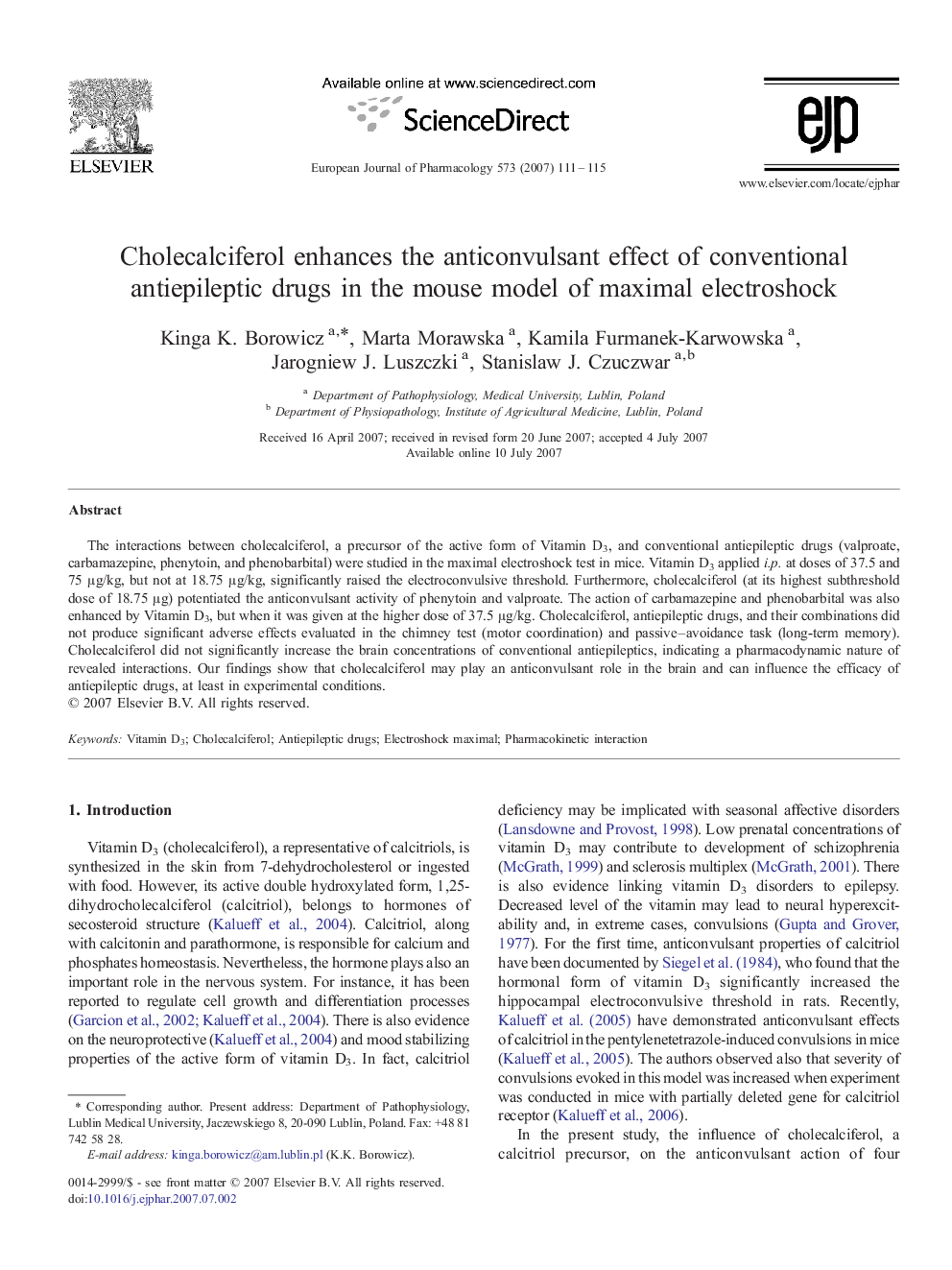| Article ID | Journal | Published Year | Pages | File Type |
|---|---|---|---|---|
| 2535873 | European Journal of Pharmacology | 2007 | 5 Pages |
The interactions between cholecalciferol, a precursor of the active form of Vitamin D3, and conventional antiepileptic drugs (valproate, carbamazepine, phenytoin, and phenobarbital) were studied in the maximal electroshock test in mice. Vitamin D3 applied i.p. at doses of 37.5 and 75 μg/kg, but not at 18.75 μg/kg, significantly raised the electroconvulsive threshold. Furthermore, cholecalciferol (at its highest subthreshold dose of 18.75 μg) potentiated the anticonvulsant activity of phenytoin and valproate. The action of carbamazepine and phenobarbital was also enhanced by Vitamin D3, but when it was given at the higher dose of 37.5 μg/kg. Cholecalciferol, antiepileptic drugs, and their combinations did not produce significant adverse effects evaluated in the chimney test (motor coordination) and passive–avoidance task (long-term memory). Cholecalciferol did not significantly increase the brain concentrations of conventional antiepileptics, indicating a pharmacodynamic nature of revealed interactions. Our findings show that cholecalciferol may play an anticonvulsant role in the brain and can influence the efficacy of antiepileptic drugs, at least in experimental conditions.
